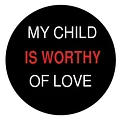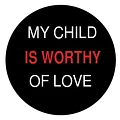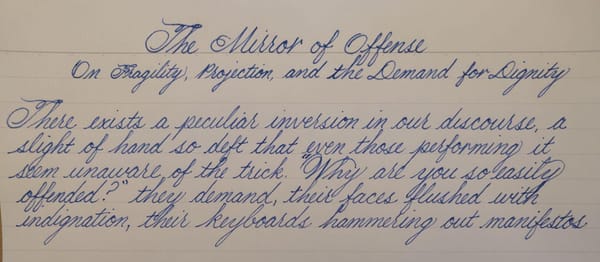Unpacking Lisa Shultz's Latest Trans Panic Disguised as Therapy

When "Family Values" Meet "Family Realities"
There's something deeply familiar about watching self-proclaimed experts warn that some new social change is destroying the sacred family unit. History repeats itself: they said it about interracial marriage, women's suffrage, divorce rights, and same-sex marriage. And now, it seems we've arrived at the latest iteration – the idea that "gender ideology" and adult children setting boundaries are twin forces destabilizing Western civilization. How convenient.
Let's briefly dive into Lisa Shultz's piece, which leans heavily on the work of Rachel Haack, a marriage and family therapist intern with a substantial social media following. Yes, that credential matters – don’t worry, we will circle back to it.
The Soviet Union Called. They Want Their Propaganda Framework Back.
Haack's entire premise rests on applying a Cold War-era framework about Soviet subversion techniques to... family therapy? She claims we're witnessing a four-stage process: demoralization, destabilization, crisis, and normalization – all supposedly leading to the destruction of the traditional family.
But here's the first inconvenient truth: this framework comes from Yuri Bezmenov, a former KGB agent whose claims have been widely disputed by actual historians and intelligence experts. His model has been embraced primarily by conspiracy theorists, not serious academics studying social change.
The irony here is almost too perfect to ignore: while Haack uses this Soviet-derived framework to suggest transgender acceptance is part of some orchestrated subversion, intelligence agencies have actually documented Russian disinformation campaigns amplifying anti-transgender content to increase social division in Western democracies. It's a remarkable case of accidental projection.
What's remarkable is watching a supposed mental health professional uncritically adopt this framework rather than applying, you know, actual therapeutic models backed by research. This should immediately raise red flags about the analytical rigor being applied here. Maybe this is why she is still an intern.
When "Therapist" Means "Therapist-in-Training"
While Haack presents herself as simply "a therapist," a closer look reveals she's an MFTI – a Marriage and Family Therapist Intern. This means she's still completing her supervised clinical hours and is not yet fully licensed.
This isn't to suggest interns can't have valuable insights, but there's a meaningful difference between a fully licensed professional with years of independent practice and someone still completing their training. That distinction becomes particularly important when someone is positioning themselves as an authority on complex societal patterns affecting all families.
Caveat Emptor
The Power Dynamics They Don't Want You to Notice
The most glaring omission in both Shultz's and Haack's analyses is any meaningful discussion of power dynamics within family structures. Throughout history, families have been hierarchical units where parents held near-absolute authority over children. The recent shift toward more egalitarian family models isn't "subversion" – it's evolution.
When Shultz laments that "'boundaries' seems to be a weapon now," what she's really lamenting is the loss of unquestioned parental authority. The article frames adult children setting boundaries as "kids dictating" family rules, completely inverting the actual power relationship that exists in most families.
Research consistently shows that most estrangements occur after years of attempted reconciliation and boundary-setting that was repeatedly violated – not as impulsive decisions made by entitled young people.
The Trans Panic Button
Let's address what this is really about. Halfway through her article, Shultz finally reveals her actual concern: transgender people.
"And now, I will dip my toe in the water of what gender ideology has done to families worldwide."
Just dipping a toe, folks! Nothing to see here!
What follows is a paragraph suggesting that affirming transgender identities is destroying families rather than acknowledging the obvious alternative explanation: families who reject their transgender members are choosing ideology over their own children's well being.
The reality? Studies consistently show that transgender youth with supportive families have mental health outcomes similar to their cisgender peers, while those rejected by family face significantly higher risks of depression, anxiety, and suicidal ideation.
"Emotional Abuse" – The Label They Don't Want You to Use
Perhaps the most telling aspect of both articles is their dismissal of terms like "emotional abuse" as trendy buzzwords rather than meaningful concepts.
Shultz writes: "The 'emotional abuse' label is often used as a charge against a mom or a dad, and usually it comes without a discussion. It is often a verdict without a dialogue."
This framing completely ignores the reality that many adult children have spent years or decades attempting these dialogues before applying such labels. The dismissal of psychological terminology serves a specific purpose - it discredits the experiences of those who have recognized harmful patterns in their family systems.
When "Ancestry" Becomes a Cudgel
Both articles lean heavily on appeals to ancestry and tradition, with Shultz quoting a Chinese proverb: "To forget one's ancestors is to be a brook without a source, a tree without a root."
But here's another inconvenient truth: traditions evolve. Cultures change. And throughout history, the most harmful family patterns have been perpetuated precisely through appeals to tradition and ancestral obligation.
What's particularly cynical is how Shultz uses this appeal to tradition specifically against transgender people, lamenting: "When a child is named after a grandparent, and the child rejects the name and changes the birth certificate, which rewrites the historical record, it disrespects the grandparents and parents and dishonors truthful ancestral records."
Apparently, the ultimate family betrayal isn't abuse or neglect – it's changing your name. Won't someone please think of the ancestral records?
The Real Crisis: Relationship Consent
What both Haack and Shultz miss completely is a fundamental principle that modern family therapists actually embrace: relationships between adults should be consensual. This applies to family relationships as much as any other.
The concept that adult children somehow owe their parents ongoing relationships regardless of treatment is a holdover from hierarchical family structures that psychologists now recognize can perpetuate harm across generations.
Ethical family therapists focus on creating healthy dynamics where relationships are maintained through mutual respect, not obligation or fear.
The Inconvenient Truth
So when Lisa talks about “The Destruction of the Family Unit” and asks “Why Are the Bonds Unraveling?” we can point out the following:
- When someone claims that modern family dynamics represent "subversion" rather than evolution, they're telling you more about their own anxieties and projections than about families.
- The real threat to families isn't transgender acceptance or boundary-setting - it's rigid ideologies that demand conformity over wellbeing and tradition over authentic connection.
Which path sows division over unity? Understanding, compassion, and love or denial, rejection, and conditional love? The important distinction here is from where these qualities and principles come from, and who, what, or why they are directed in the manner they are.
Your trans/non-binary kid is not rejecting you as a parent, nor are they denying science, facts, or truth and they are not placing conditions on you in order to be loved. If that is what you take away from your trans kid, adult or not, then you are projecting so hard that you should open your own cinema.
Healthy families adapt, communicate openly, respect individual autonomy, and prioritize genuine relationships over control. What Shultz mischaracterizes as destructive "gender ideology" is simply families accepting their transgender members for who they are - creating a foundation of safety, acceptance, and respect that allows each person to flourish. That is loving your child for who they are.
That's not subversion – that's the very purpose of family itself.
Citations:
[1] Rid, T. (2020). Active Measures: The Secret History of Disinformation and Political Warfare. Farrar, Straus and Giroux.
[2] Cherlin, A. J. (2010). The Marriage-Go-Round: The State of Marriage and the Family in America Today. Vintage.
[3] Agllias, K. (2018). Missing Family: The Adult Child's Experience of Parental Estrangement. Journal of Social Work Practice, 32(1), 59-72.
[4] Olson, K. R., Durwood, L., DeMeules, M., & McLaughlin, K. A. (2016). Mental Health of Transgender Children Who Are Supported in Their Identities. Pediatrics, 137(3).
[5] Barnett, M. D., & Johnson, D. M. (2016). The perfectionism social disconnection model: The mediating role of communication styles. Personality and Individual Differences, 94, 200-205.
[6] Scharp, K. M., & Thomas, L. J. (2016). Family "bonds": Making meaning of parent–child relationships in estrangement narratives. Journal of Family Communication, 16(1), 32-50.


